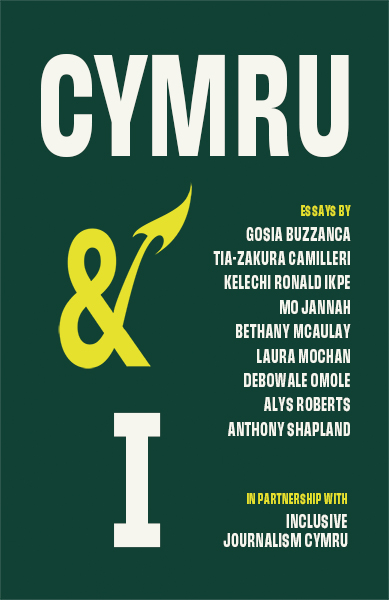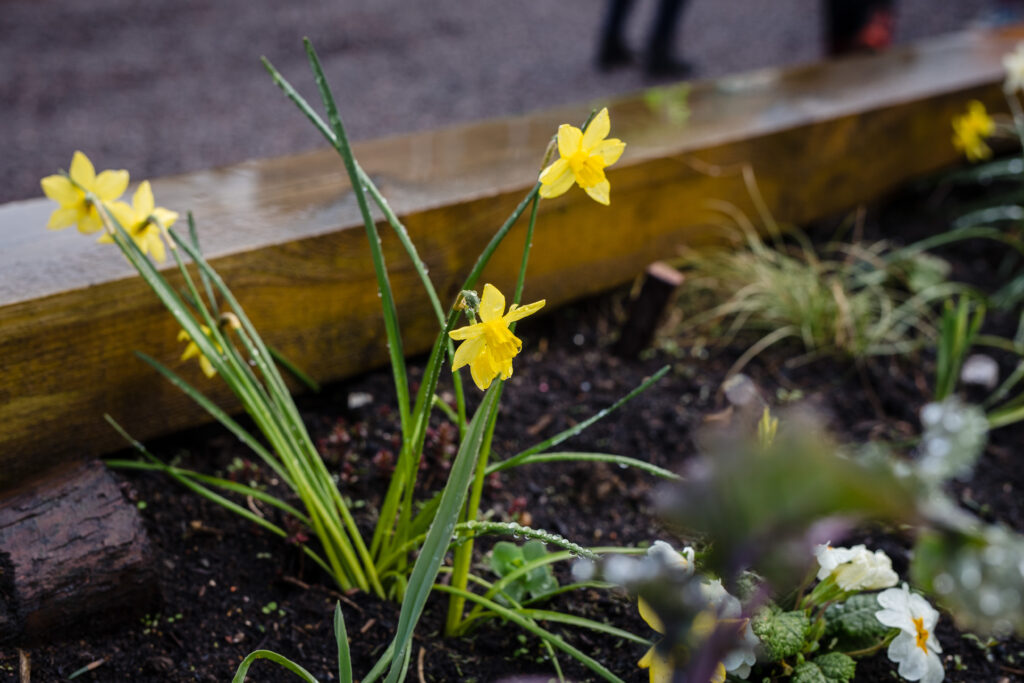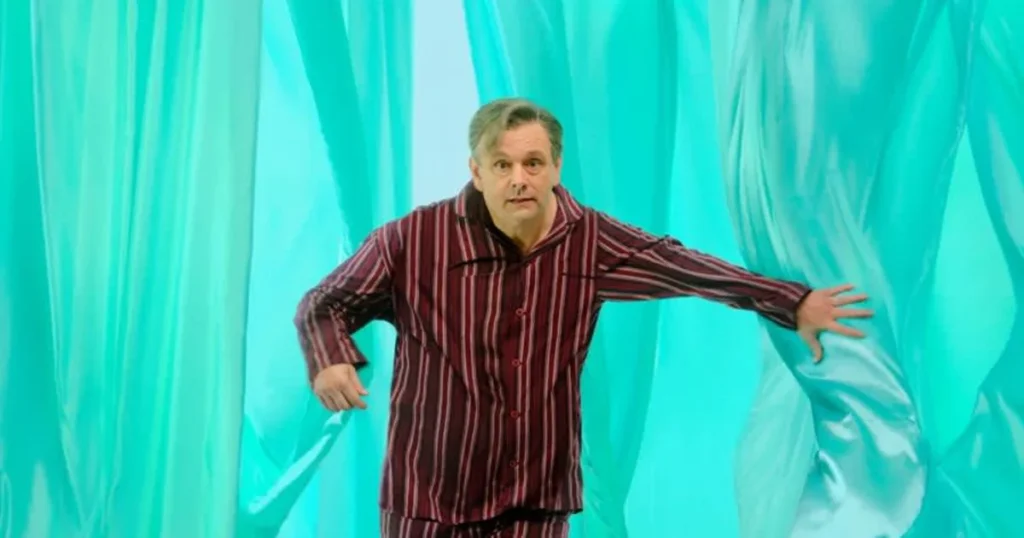Gwilym Hubbard reviews Cymru and I, a collection of essays exploring the many narratives that inform Wales today.
There is no single way of being Welsh, but it is easy to be drawn to narratives that offer a deceptive appearance of simplicity. Cymru and I is a book of nine new writers from diverse backgrounds who, by sharing their thoughts on what it means to be Welsh today, do much to counter this pitfall.
Creating a space for marginalised voices to be heard has been the driving force behind the establishment of Inclusive Journalism Cymru, whose support made the essay collection Cymru & I possible. The essays published here fulfil this pursuit, weaving together a variety of complex reflections on contemporary Welsh life. Importantly, the collection demonstrates how important the work of such organisations as Inclusive Journalism Cymru is. To quote a comparison from the introduction to the collection, Wales is a country made up of three million puzzle pieces, and to avoid certain pieces means dismissing the bigger and complete picture these pieces make up.
It is necessary to re-imagine Welshness in order to accommodate the areas – like Rhyl – that challenge the current Welsh national story.
The need to look beyond pre-existing narratives around local areas shines through within Bethany McAulay’s essay ‘Vague Shapes Inland’, which suggest that Wales might be ‘a country scaffolded by myth’. Yet prevailing narratives around what constitutes Welshness can have the effect of overlooking certain communities. McCaulay notes how often her own Welshness has been questioned as a result of her hometown, Rhyl, which she notes has been abandoned by Westminster, but also Wales. The town’s Englishness and Welshness, challenges ‘the more traditional, proudly ancestral Welsh identity that is often conjured in the patriotic imagination’. McCaulay concludes the essay suggesting that it is necessary to re-imagine Welshness in order to accommodate the areas – like Rhyl – that challenge the current Welsh national story.
Debowale Omole’s ‘Scars, Knotweed, and a Dream’, similarly captures the tension between recognising Wales as a home and wishing it to be better.
Exiting and entering Wales is a theme prominent elsewhere in another highlight from the collection: ‘A Concatenation’ by Gosia Buzzanca. Echoing the way McAulay’s move from Rhyl prompted a revaluation of her own identity, this essay moves back and forth in time to chronicle Buzzanca’s experiences in her native Poland and adoptive Wales. Capturing the experiences of motherhood, it also tells the story of becoming a writer within the sanctuary of Wales that helped make this possible.

Debowale Omole’s ‘Scars, Knotweed, and a Dream’, similarly captures the tension between recognising Wales as a home and wishing it to be better. Narratively framed around a nightmare, the essay still concludes with a sense of close connection to Wales, comparing it to ‘that part of your home you can’t stop working on because it’s brilliant when attended to and a place to hide from guests when it is not’. Questions around the meaning of home also feature heavily within, ‘In a New Land’. In a piece bookended by arrivals, Kelechi Ronald Ipke opens with his family’s move from Nigeria to Swansea, and concludes with their move to Crewe. In the eighteen months they spent in Swansea, he describes the difficulties of living in this official city of sanctuary, including his struggle to find employment. Yet, leaving Swansea is still a sad occasion, as he notes that ‘it had truly become my city of sanctuary’.
Some essays within the collection choose to zoom out and give a broad overview of Wales and its history. This tendency is at its most obvious in ‘Global Wales: A Legacy of Multiculturalism’. Mo Jannah writes a detailed and thoughtful history of multiculturalism in Wales spanning the 16th to 21st century to show how the Wales of yesterday and today is a rich multicultural society.
Laura Mochan’s essay ‘Where Giants Fall’ considers similar ideas, though on a much more local scale. Focusing on Merthyr Tydfil, Mochan chooses to dispel negative perceptions of her hometown, and instead, champions its radical and diverse history in a compellingly well-written essay. The piece emphasises a need to move beyond sensationalist bad representation often pushed by journalists who ‘thrive on nothing but bad news’, and instead asks that we listen to the voices of residents themselves.
Innovative. Informed. Independent.
Your support can help us make Wales better.
The essay collection makes it clear that Wales is, and always has been, a multicultural nation. To fully demonstrate this, the collection rounds off with a collection of pieces that consider the multidimensional nature of Welsh identity, focusing on stories that tell the complexities of the many Welsh identities that make up the nation. Alys Roberts’ ‘My Dyslexic Disguise’ carefully considers how Welshness obscured dyslexic identity, having grown up through Welsh medium education. For Alys, the complexities of being Welsh and dyslexic are fully embraced, as the latter is seen as an integral part of her identity. Anthony Shapland’s ‘Meantime’, another stand out of the collection, covers a variety of experiences of growing up gay in Wales through the course of 20 short stories about ‘coming out and living out’, as he puts it.
Cymru & I offers insightful reflections on contemporary Wales and highlights the specificity and beauty of the multiple identities and stories that shape the country.
Experimentation with the structure of the essay format features throughout the collection, bringing us to a discussion of the excellent ‘Dringo’n Ddu’ by Tia-Zakura Camilleri. The piece intertwines the epic story of a three peaks challenge with a variety of reflections of being Black and Welsh, offering thoughts on the lack of diverse representation within hiking and during the long walk itself.
Overall, Cymru & I offers insightful reflections on contemporary Wales as a result of the strength of the essays featured, as well as the platform it creates for the authors featured within the collection. Adding to the ‘grand puzzle’ of the Welsh nation, this collection highlights the specificity and beauty of the multiple identities and stories that shape the country.
All articles published on the welsh agenda are subject to IWA’s disclaimer. If you want to support our work tackling Wales’ key challenges, consider becoming a member.





